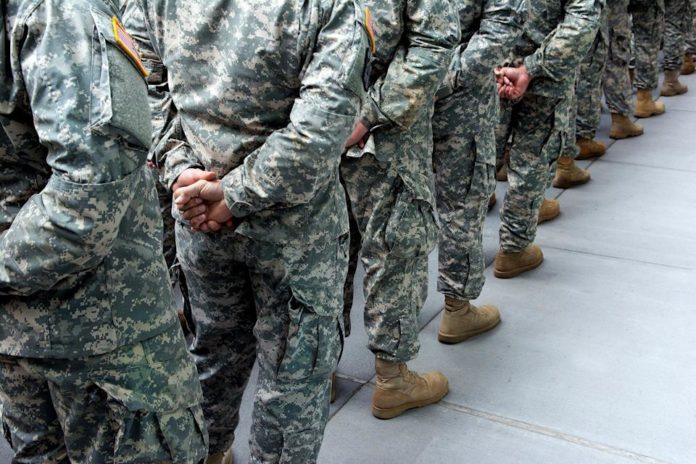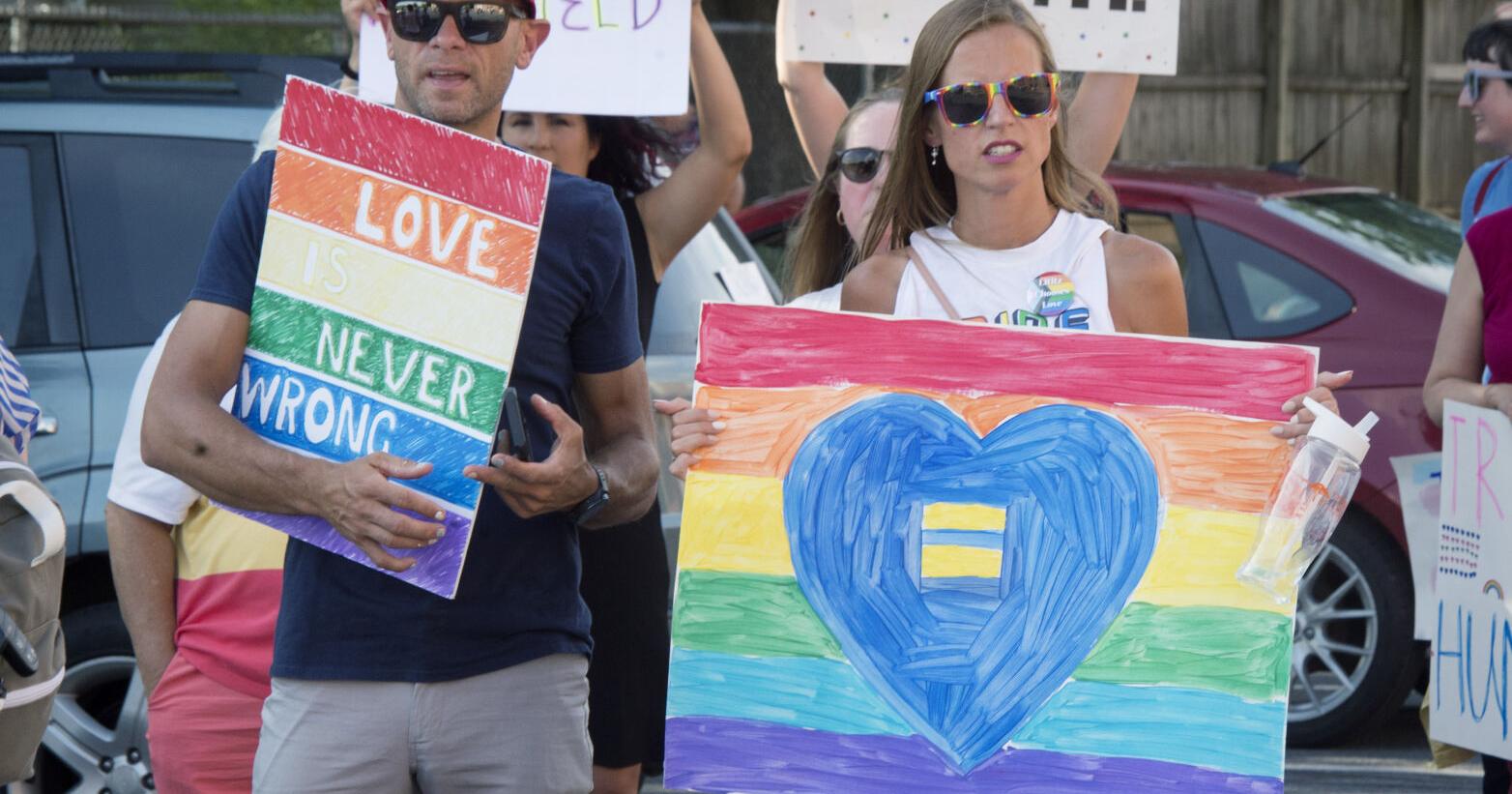
Getty
Ten years after the repeal of the U.S. military’s controversial “Don’t Ask, Don’t Tell” policy banning openly gay, lesbian and bisexual service members, tens of thousands of veterans who were dismissed for admitting their sexual orientation may soon be able to receive full benefits from the Department of Veterans Affairs.
“Today, we are also taking steps to clarify VA policy for Veterans who were given other than honorable discharges based on homosexual conduct, gender identity or HIV status,” Kayla Williams, assistant secretary for public affairs in VA’s Office of Public and Intergovernmental Affairs, wrote in a blog post published Monday on a VA site.
“Under this newly-issued guidance, VA adjudicators shall find that all discharged service members whose separation was due to sexual orientation, gender identity or HIV status are considered ‘Veterans’ who may be eligible for VA benefits,” Williams wrote.
The Military Times reported Friday that the VA was preparing to announce the change in policy this week.
Under the new policy, the department will review the cases of those who received other-than-honorable discharges and presumptively favor reinstating benefits for them unless there was a clear problem, such as a criminal history.
“Ten years ago today, a great injustice was remedied and a tremendous weight was finally lifted off the shoulders of tens of thousands of dedicated American service members,” President Joe Biden said in a statement on Monday.
“The repeal of Don’t Ask, Don’t Tell, which formally barred gay, lesbian, and bisexual service members from openly serving, helped move our nation closer to its foundational promise of equality, dignity, and opportunity for all,” Biden continued. “It was the right thing to do. And, it showed once again that America is at its best when we lead not by the example of our power, but by the power of our example.”
In 1993, President Bill Clinton issued a directive to the military which created a policy that prohibited service members from admitting homosexuality or bisexuality while serving in the armed forces. At the same time, recruiters and other members of the military were not allowed to discriminate against LGBT personnel or ask about their sexuality.
RELATED: 92-Year-Old WWII Vet Fought ‘Don’t Ask Don’t Tell’
The policy was repealed in 2011 during the administration of President Barack Obama — but not before nearly 14,000 service members were let go from military ranks with less-than-honorable discharges for admitting their sexual orientation, according to the Military Times.
In addition, the news outlet reported Friday that additional LGBTQ veterans who served and were dismissed before and since “Don’t Ask, Don’t Tell” are also potentially eligible for benefits.
An estimated 100,000 service members may have been let go from positions within the branches of the U.S. military due to disclosing their LGBTQ status, according to the Military Times.


Mark Wilson/Getty Joe Biden (left) and Barack Obama (right) in 2009
“Many of these veterans received what are known as ‘other than honorable’ discharges, excluding them and their families from the vitally important services and benefits they had sacrificed so much to earn,” Biden also said in his statement on Monday.
“As a U.S. Senator, I supported allowing service members to serve openly, and as Vice President, I was proud to champion the repeal of this policy and to stand beside President Obama as he signed the Don’t Ask, Don’t Tell Repeal Act into law. As President, I am honored to be Commander-in-Chief of the strongest and most inclusive military in our nation’s history.”
RELATED: West Point Hosts First Same-Sex Marriages
In 2010, Obama said in a State of the Union, “This year, I will work with Congress and our military to finally repeal the law that denies gay Americans the right to serve the country they love because of who they are.”
The Don’t Ask, Don’t Tell Repeal Act, which established a process for ending the policy, became law the following year and was implemented by the armed forces on Sept. 20, 2011.








